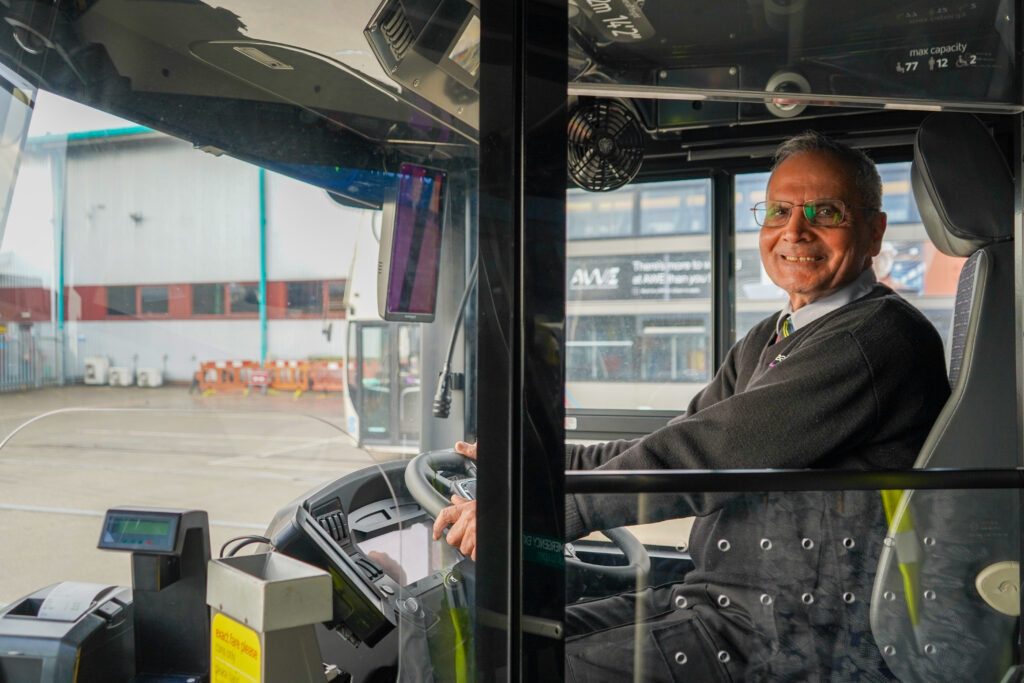
Amarjit started with the company in 1975 as a fresh-faced 22-year-old. It was his third job but he was originally considered to be too young to drive a bus, so started out as a conductor. He did this role for about three years.
His starting wage was just 75p per hour, but, as goods were much cheaper back then, it allowed him to buy his house while still quite young.
Once he started driving, Amarjit found himself on buses from the 1950s and 1960s which were very heavy to drive – from heavy steering to clunky gears.
He also remembers that on the old Regents, there was a hole where the steering wheel column came up through the floor, meaning there was a terrible draft. He said drivers used to put their trousers into their socks and then tie them up with string to keep the cold out! He says the buses are definitely better now, easier to drive and much safer for everyone.
There were also no radios on buses when he started.
Said Amarjit; “if you broke down, you were expected to find a public phone to alert the inspectors – although if you didn’t appear after a while, they would send the emergency engineer to find out what had happened.”
He recalls that the roads were much quieter, although delays did still occur and had to be dealt with in the town centre after the bus returned due to the lack of communication equipment.
Amarjit said a big change came in around 1980 as conductors started to disappear and drivers were expected to issue their own tickets.
Said Amarjit; “I actually enjoyed issuing tickets as well as driving – I liked interacting with customers. I don’t think others were so keen though!”
During this period, he drove lots of routes, including the X1 to Southend in one direction and Aldgate in the other. Due to regular problems with the railway at the time, the buses were always full leaving Reading and most of the time they had to be followed by an extra bus to pick up more passengers as the route progressed!
During his time, Amarjit remembers an industrial strike around 1977 which lasted for 13 days – however, he said that it was largely ignored and nothing changed so the drivers had to go back to work – having had to forgo their pay for that period. Longer term, pay and working conditions have improved significantly though.
The background of employees at Reading Buses was very multi-cultural even back then – Amarjit remembers there being quite a few drivers from the West Indies, including people from the Windrush Generation, as well as from India and Pakistan.
Amarjit has also been in the paper for his keen-eyed citizenship helping to catch a burglar. The person had been stealing from old people’s houses and the police had sent a picture round of the suspect. Amarjit recognised the man as he got on his bus and radioed through to control who alerted the authorities. A little further on the route, police appeared and the man tried to flee by climbing on the roof of a house, but was caught. The police were grateful and gave him a certificate.
Overall, he has massively enjoyed driving and interacting with customers. He was a school bus driver for a long time and tells of a story that recently a man got on his bus and told him that he had been his school bus driver and remembered him – the man was now 50 years old!
Amarjit says the best piece of advice he was given was to leave your worries at work and go home happy. This is something he does to this day.
Robert Williams, Reading Buses’ Chief Executive Officer said “we are honoured that Amarjit is still a part of our Reading Buses family. Thank you and congratulations, Amarjit!”
END